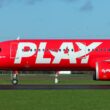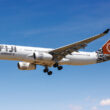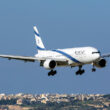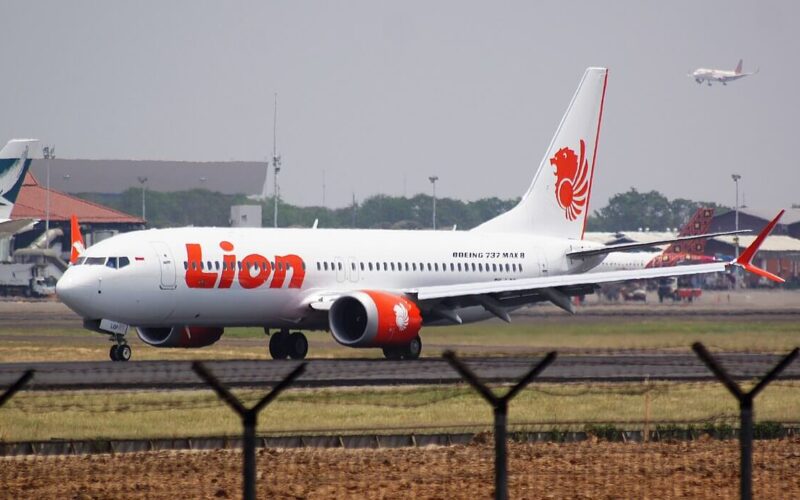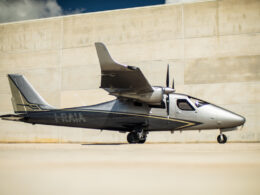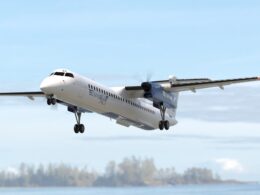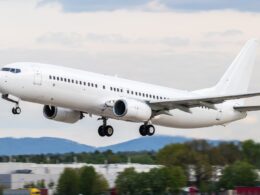The final report of the Indonesian investigators says the design and development of the MCAS system by Boeing was the main cause for the crash of Lion Air Boeing 737 MAX flight JT610 on October 29, 2018, that killed 189 passengers and crew. Improper certification, training, and maintenance issues were also pointed at as contributing factors.
The Indonesian National Transportation Safety Committee (KNKT) found out that a failure of the MCAS system resulting in a loss of control of the aircraft was not sufficiently taken into account during design and certification, blaming both Boeing and the U.S. Federal Aviation Administration (FAA). The manufacturer and the authority should “more closely scrutinize the development and certification process for systems whose malfunction has the ability to lead to loss of control of the airplane,” states the report, adding that “the MCAS function was not a fail-safe design and did not include redundancy”.
Inconsistencies were found in the MACS certification report: the system is known for correcting the angle of the stabilizers by 2.5°, yet FAA documents stated the maximum was only 0.6°. “It caused a much greater movement of the stabilizer than was specified in that original safety analysis document,” is noted in the report.
The investigators estimate that FAA delegated too much of its responsibility to Boeing engineers under the Organization Designation Authorization (ODA) program that allowed the manufacturer to conduct safety inspections and certification of its aircraft using its own engineers certified by the authority.
It had already been called into question by the Joint Authorities Technical Review, (JATR) conducted by a committee regrouping the FAA, the European Aviation Safety Agency (EASA), and aviation authorities from Australia, Brazil, Canada, China, United Arab Emirates, Indonesia, Japan, and Singapore, as well as NASA, published on October 14, 2019.
The investigators found out that the design of the multiple alerts also contributed to the failure of the flight crew to address the problem correctly, as had already reported the National Transportation Safety Board (NTSB) in September 2019. “Flight test pilots generally have more knowledge about the aircraft design characteristics than normal pilots. This level of competence usually cannot be translated to most pilots”, says the KNKT. Furthermore, manuals issued to pilots were not complete enough for them to diagnose MCAS problems correctly.
But the pilots are not exempt from criticism. It appears that one of them was unfamiliar with the procedures and had encountered difficulties in piloting the aircraft during his training, resulting in improper reactions. Despite the captain managing to lift the nose of the aircraft up twenty times, his first officer was unable to complete the checklist that would have deactivated the MCAS.
Lion Air maintenance workers were also found responsible. One of the AOA probes installed on the aircraft, supplied second-hand by a Florida-based company Xtra Aerospace, was found faulty. However, it had not been tested during the installation. Moreover, despite similar erroneous readings occurring on the previous flight operated by the aircraft, Lion Air maintenance personnel did not make the decision to keep the aircraft on the ground. Data from the previous flight showed that the readings differed by 21 degrees between the two sensors.
The report thus recommends for Lion Air to better assess the training of its pilots and maintenance engineers. As for Boeing, it should reconsider the design and documentation of the MCAS as well as any coming systems capable of taking over control from pilots. The alerts system should also better take into consideration pilots’ response time.
Following the publication of the report, Boeing released a statement in which it promises to address the KNKT safety recommendations, and take “actions to enhance the safety of the 737 MAX to prevent the flight control conditions that occurred in this accident from ever happening again”. It claims having already added a fail-safe concept to the updated version of the MCAS that will rely on two sensors and only activate if the readings match. Crew manuals and pilot training are also being reviewed.
Xtra Aerospace, whose probe was involved in the crash, saw its certification revoked by the FAA shortly after the report was made public. “We have been cooperating closely with the FAA throughout its investigation and though we have reached a settlement with the FAA, we respectfully disagree with the agency’s findings,” said an Xtra Aerospace spokesperson to AeroTime, adding ”the FAA’s enforcement action is separate from the KNKT’s investigation and report of the Lion Air Boeing 737 Max accident and is not an indication that Xtra was responsible for the accident”.

